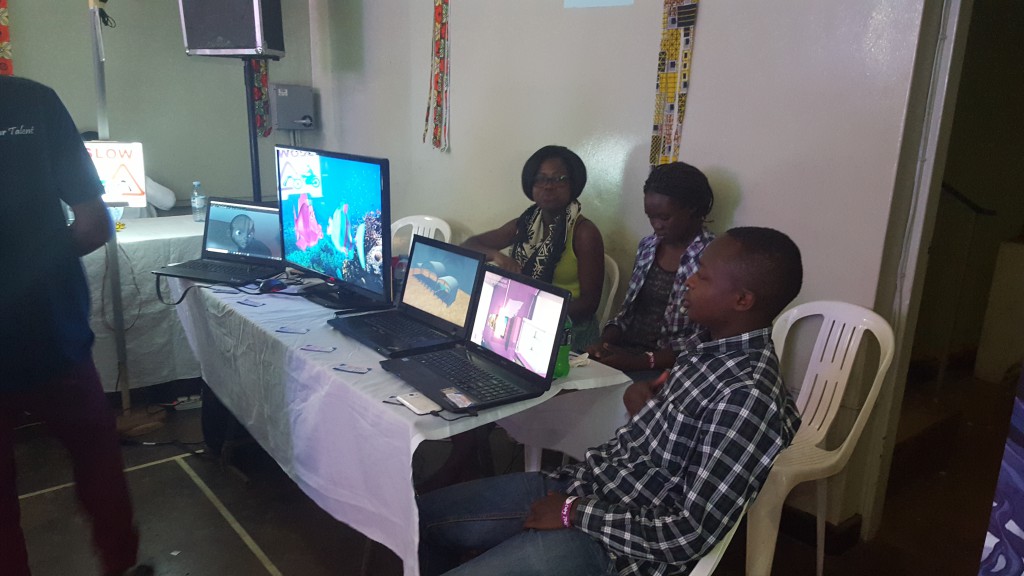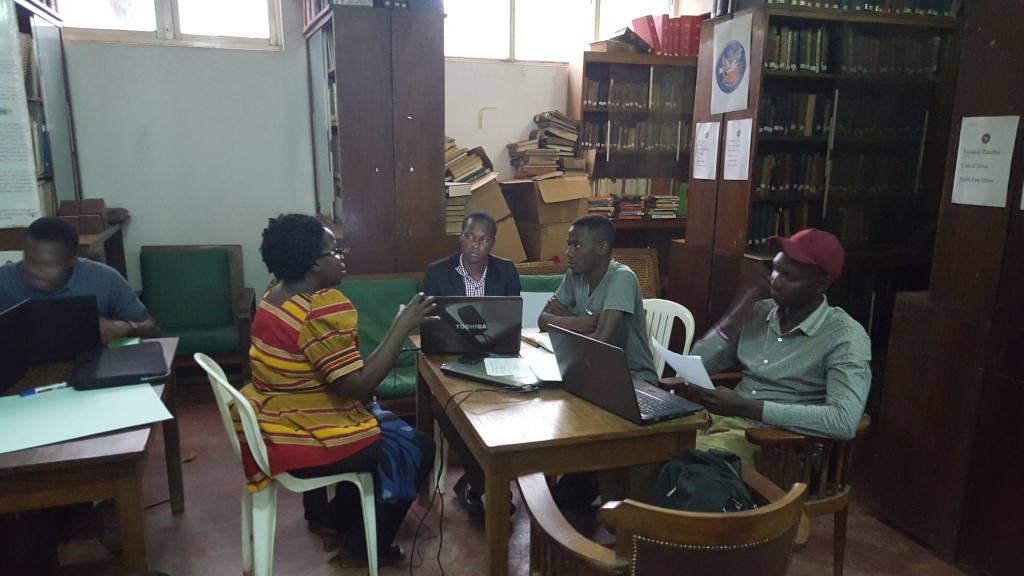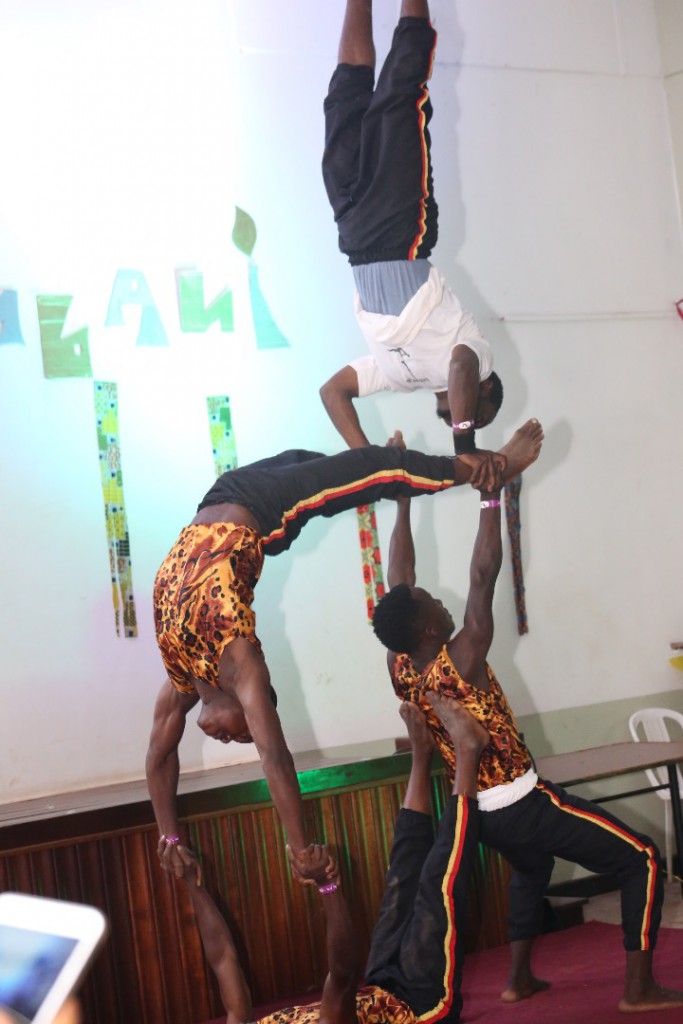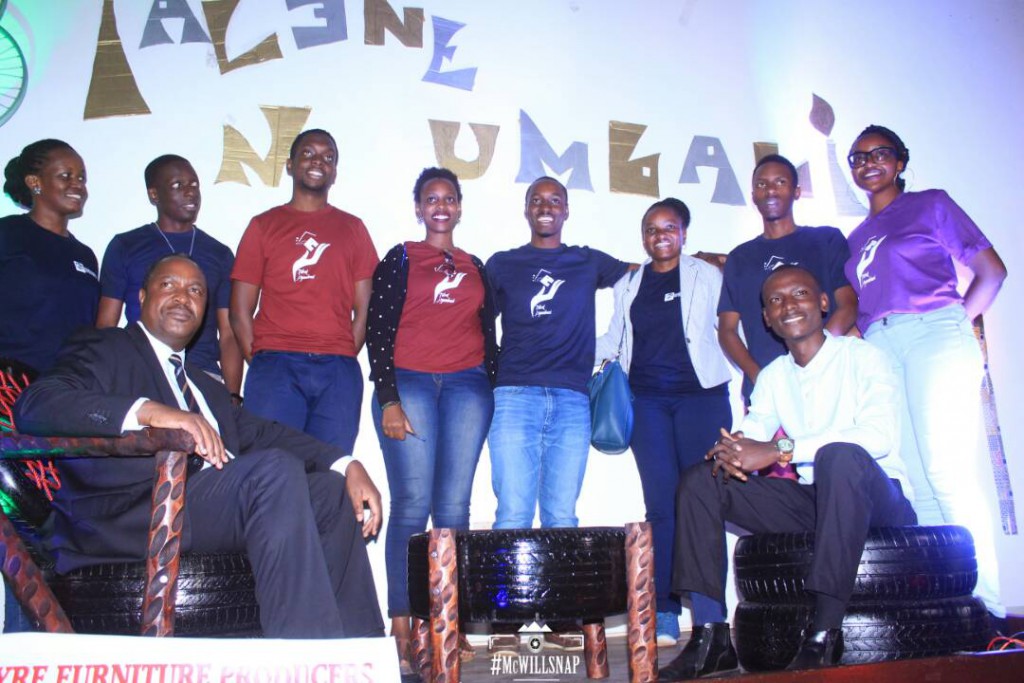by Dewey Bazirake, Class of 2020
As a college student with all the assignments, course load, and social life demands, how can you grow your entrepreneurial spirit and pursue the project of your dreams?
Talent Nyumbani is a social non-profit organization that I founded in Kampala, Uganda, before arriving at the University of Rochester in 2016. This organization aims at bringing out the best of talents in the youth of Uganda. We continue to promote and showcase talents and innovations in science and technology, art and photography, dance and music, and poetry and rap.
How did this idea come up?
On a flight back home from a United World College in Costa Rica, I was highly energized and motivated to start a new venture that would create impact in my home country. I first thought about setting up a house party for friends and charging a fee but this idea was flawed. What value was I was creating for my peers in Uganda?
As I thought deeper about it, I referred to a book that I pleaded with my brother to get me. This was The Personal MBA by Josh Kaufman, a concise guide on how to start and manage a successful business. The first chapter was about value creation, an element that gave purpose to a business. As I assessed my background and surroundings, I began to wonder why some students who were smarter than me in class weren’t recognized for their creativity and skills.
I realized that there was a gap in giving opportunities to the youth. The youth lacked an avenue to share their unique talents. From that moment, I knew that I wanted to create a “house party” that empowered the youth to bring out the best of who they are. This is where the idea of Talent Nyumbani stemmed from. A welcoming place for youth to explore, discover, and share their talents. The literal translation of Talent Nyumbani in Swahili is “the house with talents.”
What did it mean to build a team?
In the summer of 2016, I embarked on an “undercover” search for the dream team. A team that displayed passion and a zeal for success. The quest to find the right team members is cumbersome but the outcome of a great team who shares your vision is invaluable. A common saying in the startup scene is, “you would rather have a bad idea and a good team as opposed to a good idea and a bad team.” The team I found was able to share, criticize, and objectively make decisions, which steered Talent Nyumbani in the direction it is today.
Now and again, there are disappointments that arise with the expectations you have with some of the team members. An example is I found some team members interested in short-term gains and quick profits. I approached the situation by being observant rather than judgmental to objectively identify the strengths and weaknesses of each team member. In the end, an entrepreneur retains the team members who add the most value to the project and are passionately driven to achieve the mission/vision.
What were the differences between the first and second event?
The first event took place in July 2016. My original idea was to have a month-long event with different activities on each day such as workshops, performances, and networking sessions. Fortunately, with the advice from my team, we pivoted to a shorter time of one week. The week had two categories on each day. The first day was terrifying as we barely got any attendees. Painters and photographers came to display their work but no one had come to view it. Was this a failure? Had I wasted all my time and effort on something that wasn’t needed? Resiliently, we waited for a turn-out. Over the course of the week, we had an increase in the number of attendees, which boosted our confidence. With appreciation for the idea, our team saw the need to hold a second event.
The second event was held on January 12, 2018. This event was quite a success with a turn-out of 170 members, more than a 100% increase compared to the last event. We also incorporated a hackathon that brought rise to technological ideas with a potential to disrupt the agricultural sector in Uganda. We had more partners on board this time such as the University of Rochester, Outbox Uganda, Innovation Village, and FundiBotz, among others. This event was also graced by the presence of Dr. Elioda Tumwesigye, the Minister of Science, Technology and Innovation in Uganda.
Did we ever fail at anything?
Failure is a common experience when it comes to startups. Failure comes in so many forms such as failure to secure funding, failure to get the team to agree on a particular direction to take, failure to get the right location and failure with the idea itself. Will my target audience find this useful?
For Talent Nyumbani, my goal of creating an open house with talents seemed impossible to achieve when I failed to get a location and when we failed to advertise in time. Day in and day out, I invested my time, effort, and resources to make the impossible possible. I received feedback of all sorts, some saying that I didn’t have enough expertise to get the project going or that the idea wasn’t ready for a market like Uganda. My advice to future entrepreneurs is to not let the negativity of others derail you from your goal. Be keen to listen and analyze various perspectives objectively to sieve out what is beneficial to the project in the long term.
How did we deal with the failure?
The process of starting from an idea and working toward a finished product is what builds an entrepreneur through failure and continuous progress. The best way to deal with failure is by being calm in the most difficult situations, understanding the root cause of a problem, and crafting solutions together as a team. Without the support structure of your team, a leader is destined for failure.
Whenever an issue arose, I’d gather the team and we’d tackle the problem together. Each team member had a unique contribution and perspective. Problem solving requires robust brainstorming and immediate action in order to mitigate any future challenges. In the end, we encountered financial, logistical, management, and service delivery problems. However, we conquered these because of our team spirit and vision for the project.
What metrics did we use to measure success?
At the very beginning of the event, our success was having the idea brought to life. We used other metrics such as the adoption rate, partnerships formed, and the solidification of the team. When starting up, it is advised to have the long-term vision in mind. However, the majority of the effort should be allocated toward creating the Minimal Viable Product (MVP), which is a prototype/event/tangible product that your customer will interface with. This initial step will give rise to feedback which you will continuously use to improve your product/service.
So what’s next?
We are currently working on improving our presence online to be more accessible to other youth in Uganda and neighboring countries. It is our intention to conduct regular events at high schools and universities around Uganda in the upcoming year. With the growing partnerships we create, we are incorporating mentorship, skills development, and outsourcing internships as a way for the youth to improve their talents.
We welcome anyone who is interested in empowering the youth and solving the issue of unemployment in developing countries. Our long term vision is to bring out the most outstanding talent in Africa and share it with the rest of the world.





